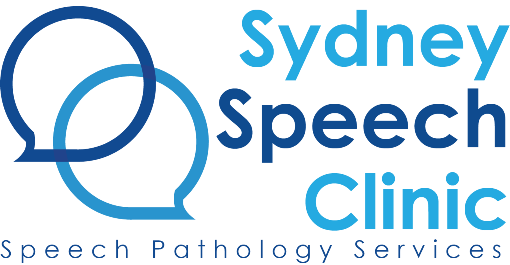What is a stutter?

Stuttering affects the fluency of speech. It usually begins during early childhood, often at around the time of rapid expressive language development between 2 ½ and 4 years of age. In some cases it lasts into adulthood. Stuttered speech is characterised by repeated movements and fixed postures of the speech mechanism. The main types of stuttering usually seen in young children are:
- repetitions Sounds, syllables, words or whole phrases may be repeated, e.g. mu-mu-mu-mu – mummy.
- prolongations Lengthening of sounds in words, e.g. ‘sssssssssit down here’ or ‘wwwwwwhere is Mummy?’
- blocks when the mouth is positioned to say a sound, sometimes for several seconds, with little or no sound produced. After some effort, the child may complete the word.
Overuse of interjections, or filler words, such as “um” or “like” can also occur. In more severe cases children may show associated behaviours such as grimacing, tense face and neck muscles and also sometimes changes in breathing such as a sharp intake of breath.

What causes a stutter?
The exact cause of stuttering remains unknown but it is generally agreed that it is a physical disturbance affecting the neural processing systems controlling speech production. It is not caused by psychological factors although later on it can be exacerbated by stress and anxiety. There is thought to be a genetic component as children with a family history of stuttering are more likely to stutter themselves.
What should I do if my child starts stuttering?
Diagnosing a stutter requires a speech pathologist to determine the exact nature and extent of the difficulty. Parents are often ill-advised to ‘wait and see’ if the stuttering will go away by itself before seeking help. Whilst it is true that many children who start stuttering do recover without intervention, we are unable to predict for which children it will become a long term issue. For that reason the advice is to seek an assessment quickly and certainly to see a speech pathologist trained in treatment of stuttering if stuttering persists beyond a few months.
How is early stuttering treated?
Behavioural approaches are the most commonly used in stuttering treatment. The most effective treatment worldwide for stuttering in preschoolers is called the ‘Lidcombe Program’, developed here in Sydney at the Australian Stuttering Research Centre. The main caregiver is trained to deliver the therapy intervention intensively outside of the clinic. Often relatives, friends and educators want to help the child but often don’t know how. Here are some pointers that may help:
- Avoid telling them to slow down, take a deep breath or start again. This usually doesn’t work and can be frustrating.
- Establish clear turn taking in conversational exchanges – when it is the child’s turn to speak, give them time to finish what they are saying without interrupting or finishing their sentences for them. Ask siblings to respect turn taking in conversation to reduce the ‘competition’ to talk in busy households.
- Use good eye contact – this shows that you are interested and really listening. Getting down to their physical eye level face to face is a great way to show you are actively listening.
- Pay attention to the message rather than the delivery – try to listen to what the child is trying to express and attend to that rather than make any comments about the way they are saying it.
- Follow their lead if possible – play what they want to play and talk about what they want to talk about. Not only is this style of interaction excellent for developing meaningful conversational language skills, but it also lets the child feel important, listened to and in control.
- Speak more slowly and calmly yourself – this sets a relaxed tone for your conversation, helps them feel less rushed and they are very likely to slow down themselves without being directly told to.
- Language – during non-fluent times use the same kind of sentences that the child does – keep them short and simple.
- Be honest – if you are busy and cannot give your full attention right now, tell them so but agree a time later when you will be available.
Always speak to a speech pathologist for specific, tailored advice related to your child’s personal situation.
